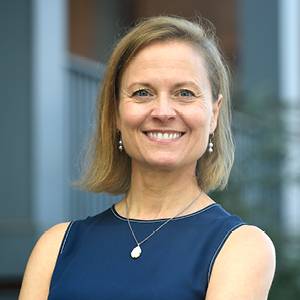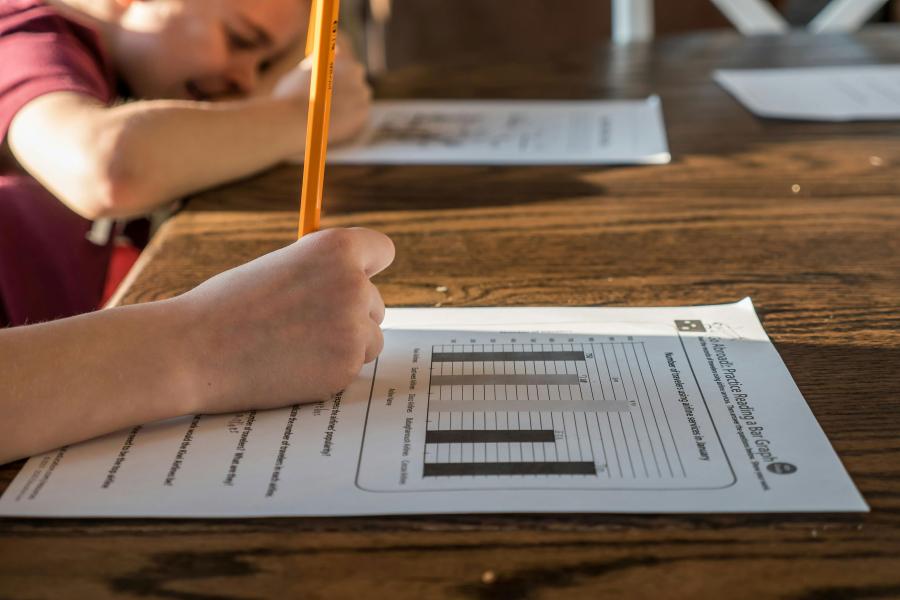In 2017, the Illinois Legislature passed a bipartisan measure that provided tax credit scholarships for low- and middle-income students to attend private schools. Supporters of the program hailed it as a chance for kids to attend alternatives to weak or failing public schools. Others, including teachers unions, argued that it siphoned much-needed funds from public schools. Ultimately, in 2023, the Legislature voted to discontinue the program.
Why such a fight around school choice in the first place? Step into any local board of ed meeting and you're sure to find discord. From book bans to critical race theory, disputes over what's taught in our public schools are playing out across the country.
"Few areas of American life have experienced more conflict of late than the district school," writes Ashley Rogers Berner, director of the Johns Hopkins Institute for Education Policy, in her book Educational Pluralism and Democracy: How to Handle Indoctrination, Promote Exposure, and Rebuild America's Schools, due out in April. The conflict, she adds, "reflects long-standing tensions about the structure of American public education and the content of our classrooms."
Berner, an associate professor at the Johns Hopkins School of Education and a historian, believes we can ease those tensions, so long as every funded school—public, private, or charter—teaches similar content. "The argument of the book," she says, "is that when governments fund a variety of schools equally and hold them accountable for academic results, kids benefit."
The "rebuild" part of the book's title is significant. Until the late 19th century, U.S. schools were what education experts call pluralistic. Local governments funded Christian, Jewish, and nonsectarian schools alike, and they all taught a "consistent body of academic knowledge," a core set of subjects all students were expected to know, Berner says. Today, she adds, pluralism serves as the model for most European countries. The Netherlands, for example, funds 36 kinds of schools, all of which adhere to the same academic standards. And most European countries require government-funded schools to teach comparative religion and ethics, covering a range of belief systems. Similar models apply in Indonesia and Israel, parts of Africa and Central America, and provinces in Canada, India, and Pakistan, she says.
But during the mid-to-late 1800s in the U.S., as an influx of Catholic immigrants—considered uncivilized by the mostly Protestant political leaders—arrived from Europe, the tide turned. "After the Civil War, state after state passed laws and put in their constitutions that they would not fund 'sectarian' schools, which was code for 'Catholic,'" Berner says. "So the culture war of the 19th century contributed to the district school model as the carrier of public education." That education is controlled by individual states, where policies allow for curricula to be developed by various parties—including, in some cases, parents—at the district and school levels.
The result: uniform delivery of education but eclectic content focused primarily on the teaching of "skills and processes," Berner says. For example, instead of studying specific poems, students are taught to find the theme of a poem. And rather than locate Rome or Athens on a map, they're taught to interpret topographical symbols. Parents dissatisfied with this approach, at least those with the means, opt instead to send their children to private and charter schools.
Other countries offer what the U.S. used to: diverse schools and common content. That content "systematically and sequentially builds background knowledge about important topics," Berner says. For example, the U.K. facilitates exposure through a national liberal arts curriculum to which all schools must adhere. "Every kindergartner learns about the Egyptians, every first grader the Greek and Roman empires," Berner explains. "That creates a common conversation across different schools—Hindu, Jewish, secular, Montessori." And knowledge is tested via national exams. "Assessments and required content drive classroom discussion," she says.

Image caption: Ashley Rogers Berner
Image credit: Johns Hopkins University
As director of the Institute for Education Policy, Berner discusses these issues with school and political leaders across the country. "And we work with many school systems that are putting the components of an academic curriculum back in," she adds.
Case in point: Duval County Public Schools in Florida. "They put Core Knowledge Language Arts, which is a really robust K–5 curriculum that has sequential knowledge-building, in all their elementary schools, and the kids' scores started improving." The International Baccalaureate Diploma Program in Chicago's public schools, she adds, "is changing the trajectory for young people because it includes rich engagement questions and great literature." Louisiana's school system also recently created knowledge-focused assessments that have helped boost achievement.
But these examples are outliers. And as the National Assessment of Educational Progress—a congressionally mandated program also known as "The Nation's Report Card"—attests, the U.S. has a long way to go. Results of the most recent NAEP exams show math and reading scores that have either declined or remained flat for a decade.
Adopting educational pluralism nationwide "will take time," admits Berner, who's hoping her new book will help turn the tide once again. "The state has to deliver education," she says, "but it doesn't have to deliver it one way."
Posted in Politics+Society








